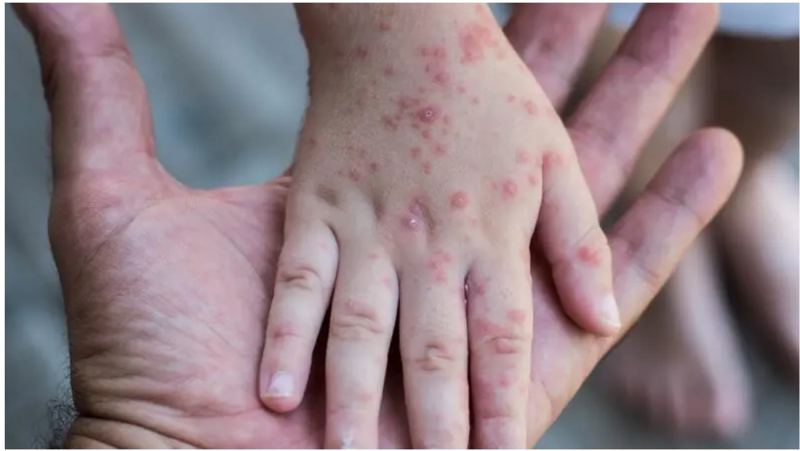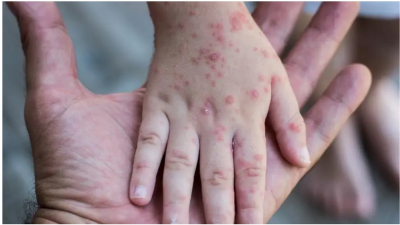Health Minister Firas Al-Abyad assured that "Lebanon is so far free from infections with the monkeypox virus, but caution is necessary, especially during periods of increased travel between countries." In an interview with "Sky News Arabia," he stated, "Regarding epidemic bacterial diseases, we are adhering to the procedures required by the World Health Organization, such as preparing isolation facilities and other specific measures immediately upon receiving any reports of infections."
He revealed that he has instructed the Public Health Ministry's preventive department to take necessary actions, particularly at entry points like Rafic Hariri International Airport and through examinations in clinics with infectious disease specialists.
In turn, infectious disease doctor Professor Jack Makhabat said that "there is no current danger to Lebanon from the monkeypox virus," although he anticipated "some cases might come to Lebanon, particularly after a few cases have recently emerged in the UK, Spain, France, and other European countries, as well as in the United States and Canada."
Makhabat explained to "Sky News" the ways in which the virus is transmitted, stating: "It spreads through respiratory droplets at close range, typically less than one meter, and through direct skin contact with monkeypox lesions." He clarified that "the reasons for the emergence of infections among patients were due to sexual contact with infected individuals."
He emphasized that "sexual relations are not a cause of infection with the virus, but they are a means of transmission from an infected person to a non-infected one." He added, "This virus can also be transmitted via contaminated materials like clothing, bedding, and towels."
Makhabat explained that "this virus affects monkeys and rodents and rarely infects humans, except in cases of skin lesions in animals." He continued, "The incubation period for this virus in an infected person ranges from 5 days to 3 weeks without any symptoms. During this stage, the virus does not transmit, and infections occur only when symptoms appear, such as fever, muscle and head pains, and a skin rash composed of vesicles containing small amounts of virus-filled fluid."
He did not rule out "the risk of fatalities due to the virus," clarifying that "the mortality rate from monkeypox infections ranges from 3.5% to 10%, especially among newborns, the elderly, and those with chronic diseases such as immunodeficiency."
Makhabat stated that "there is currently no treatment for the monkeypox virus, but the smallpox vaccine provides sufficient protection; however, this vaccination stopped for children in 1972. The last natural infection was reported in 1977 in Somalia when the world declared victory over the epidemic."
He added, "No individuals have been vaccinated against it since that date, and it is known that the protection provided by the smallpox vaccine may extend to monkeypox, as these two viruses belong to the same genus."
He continued, "The monkeypox virus is different from the common chickenpox virus that spreads in our country, which is still present, and the vaccines against it are effective; however, it is a mild disease and is unrelated to the monkeypox virus that has recently emerged."
Regarding the possibility of the virus reaching Lebanon, Makhabat stressed the "necessity of monitoring, raising awareness, and watching arrivals from countries that have reported cases. If a person exhibits skin rash symptoms, they should be isolated."
He noted that "there is no risk of infection if the virus affects a person during the incubation period, and if any relationship with an infected individual is reported, they should be contacted daily for awareness to ensure the symptoms appear that necessitate the doctor to isolate and medically follow up with the person."




